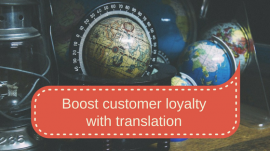
Social media has had a massive impact on how business manage their customer interactions, marketing activities and brand management over the past decade. Companies that have got their social media policy right have reaped impressive benefits. During the 2016 Grammys, Arby’s sandwich shop leveraged the long-standing joke that singer Pharrell’s hat looks like their logo by tagging him in a tweet along with #Grammys. More than 83,000 retweets ensued.
Meanwhile those that have missed the mark have incurred notable reputational damage. When Coca Cola tweeted a snow-covered map of Russia in early 2016, using an old map of the country that neglected to include Kaliningrad (which was annexed after World War II), Russians took matters into their own hands with #BanCocaCola and plentiful tweets of photos of the soft drink being poured into toilets.
Clearly, social media wins can achieve excellent results. Many companies are striving to emulate the likes of Arby’s in terms of growing their brand and reputation through social platforms. For businesses that operate in more than one country, social media wins (and fails) can pose greater challenges. Often, companies have teams in several countries but certain core departments (such as marketing) in only one, where their headquarters are. This means that a business with customers around the world may well have a monolingual marketing department. Using a professional translation company can therefore make all the difference.
Reaching out to customers in their own language is an essential part of brand enhancement. Doing so using the translation of social media updates can be a really big win. Not only does this create the potential to engage (potentially) millions of customers in dialogue, but it is also a very cost-effective way of doing so. Translators usually charge by the hour or by the number of words. In either case, the translation of a social media message, which is inherently short thanks to the nature of the medium, certainly won’t break the bank.
Using a professional translation service also means that companies can benefit from the advantages of using a localization service. Localization takes translation to the next level. Translation can transfer the words of a social media post from one language to another, but localization goes on to check the translated copy against local customs and cultural norms. An oft-cited example of a localization fail is the American Dairy Association’s ‘Got milk?’ campaign, which produced fantastic milk sales figures in the US, but fell over completely in Mexico, where the literal translation meant ‘Are you lactating?’.
The American Dairy Association’s two-word fail shows how easy it is to get into hot water with even the briefest of phrases. This is why companies that are serious about boosting customer loyalty in multiple languages are wont to rely on professional translators in order to assist them in doing so.
As with any element of a marketing campaign, using social media in this way should be carefully planned out to ensure that a strategic approach is taken and that results are monitored in a way that can inform future approaches. The advantage of using social media – if done well – is that the reach is exponential. The right tweet at the right time (as Arby’s demonstrated so perfectly at the Grammys) can have a huge reach. Companies just need to ensure that their social media posts that go viral do so for the right reasons, and not because they’ve caused offense with a poorly translated message that ends up meaning something other than it was intended to.
With the right translation company on board, businesses can rest assured that they will at least avoid doing the latter, thus maximizing their chances of positive, multilingual customer engagement around the globe.
Header image credit: pixabay
Header image edited with Canva
Author bio









Excellent post. It is always important to consider the cultural implications of translated messages or slogans.